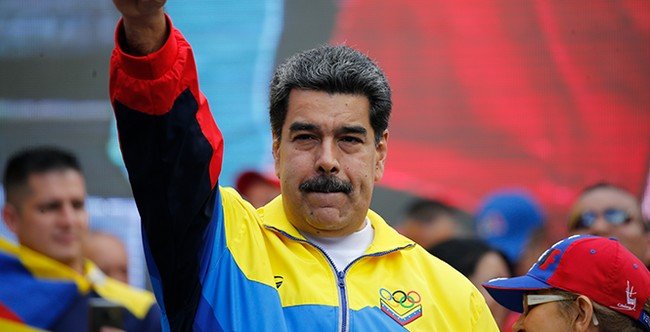
Us Bombers' Sky Art Stirs The Skies – A Bold Message To Maduro? on OnlyLikeFans

High-Flying Messages Soar Over Venezuela
In a bold display, US bombers seemed to send a not-so-subtle message to Venezuelan leader Nicolás Maduro. This comes on the heels of President Trump announcing a successful strike on a narco-boat linked to the Venezuelan drug trade. The attack, which took place in international waters, resulted in the elimination of six narco-terrorists. Intelligence indicated the vessel was transporting illegal narcotics.
Amid escalating actions against narcotics trafficking, Secretary of War Pete Hegseth shared a video of the explosive result on X, adding fuel to the political fire. Meanwhile, some speculate Democrats like Senators Adam Schiff and Tim Kaine might not be too thrilled with the developments, metaphorically lighting candles for those involved.
Sky Art or Strategic Intimidation?
With tensions high, the US military made headlines again as Boeing B-52 Superfortress bombers took flight from Louisiana, heading towards the Venezuelan coastline. Observers noted the flight path, which included some cheeky sky doodles, sparking intrigue and speculation across social media. While some anticipated a more direct intervention on Venezuelan soil, the aerial maneuver seemed to serve as a warning gesture to those watching closely.
“Sending a message in the sky is one way to get someone's attention – especially when you're flying a B-52,” joked an aviation enthusiast tracking the flight.
Adding to the day's drama, an Eastern Airlines plane, likely carrying deportees, was turned back after attempting to land in Caracas. This move isn't expected to sit well with the Trump administration, given the ongoing discourse about Venezuela's actions towards the US.
Trump's Venezuelan Challenge
As pressure mounts, President Trump remains firm on his stance against Maduro, labeling the Venezuelan leader as a purveyor of crime and destabilization. During a meeting with Argentina's president, Trump sidestepped direct questions about future plans in Venezuela but doubled down on accusations of sending criminals to the US.
In a candid moment, Trump criticized past administrations for their perceived leniency, attributing the influx of Venezuelan criminals to poor judgment from "low IQ" predecessors. As international scrutiny of Maduro intensifies, many are left wondering what the next steps will be.
For those keen on understanding the implications of US involvement in Venezuela, a detailed analysis is forthcoming, promising to unpack whether current actions are a prelude to more sustained engagement or simply strategic deterrence.
In the backdrop of these geopolitical maneuvers, the US also grapples with domestic challenges, as noted in an editorial correction regarding aircraft identification and a side note on the Schumer Shutdown, which is tied to ongoing political debates about immigration and government priorities.















